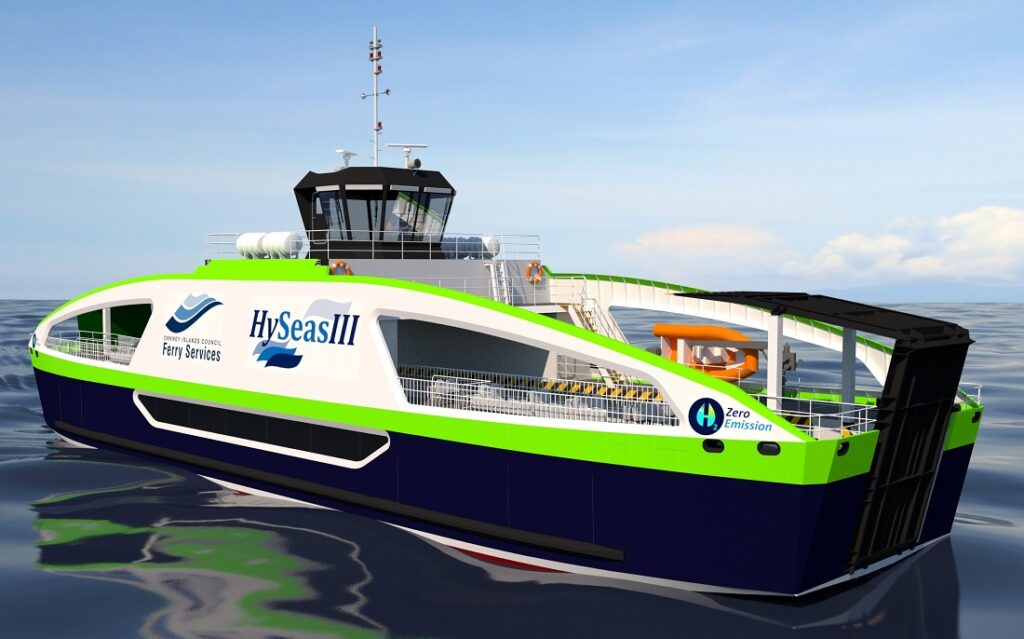Europe’s 1st hydrogen-fueled ferry design advances
2021-10-21 08:54 Release person:Schindler Logistics
October 20, 2021, by
London-based energy and marine consultancy AqualisBraemar LOC has completed the first renderings of Europe’s first hydrogen-fueled ferry, a part of the HYSEAS III project.

HySeas III is the third development stage of a project to deliver a ferry powered by hydrogen fuel cells.
The EU-funded project includes like Scottish ferry company CMAL, St. Andrew’s University, Orkney Islands Council, and several European companies.
In June.
CMAL says that the drawings show how this vessel may look. It will also serve to provide a blueprint for the further development of zero-emissions ferry travel.
As a double-ended sea-going passenger and car ferry, it will have the capacity for 120 passengers and 16 cars or two trucks.
The vessel will travel between Kirkwall and Shapinsay in Orkney, where hydrogen fuel is available through wind power. It will also be capable of operating at other ports where hydrogen could become available in the future.
The next stage is to seek the DNV Classification Society’s feasibility approval in principle of the designs.
String testing is also currently underway in Bergen, Norway to demonstrate the complete fuel cell/battery/multidrive/propulsion. The results will consequently provide valuable information for the design.
Moreover, the hydrogen-fueled ferry design will be complete in March 2022. Then, CMAL will seek funding partners to take the approved design to the procurement stage. This will lead on to the eventual tendering and construction of the vessel.
John Salton of CMAL said in in conclusion: “We know that maritime transport remains the UK’s largest emitter of greenhouse gases, and our Hyseas III project will pave the way for the first seagoing vessel using purely renewable energy.
Seeing the concept designs brings the project to life. The vessel design is broadly based on our larger loch class vessels, which are double-ended. Once the designs are approved, we will move to the next stage of the project, which will see the build of the engine to be used in feasibility studies.
The maritime industry has a key role in the global fight for climate change, and this project marks a step toward emissions-free marine transport.”




